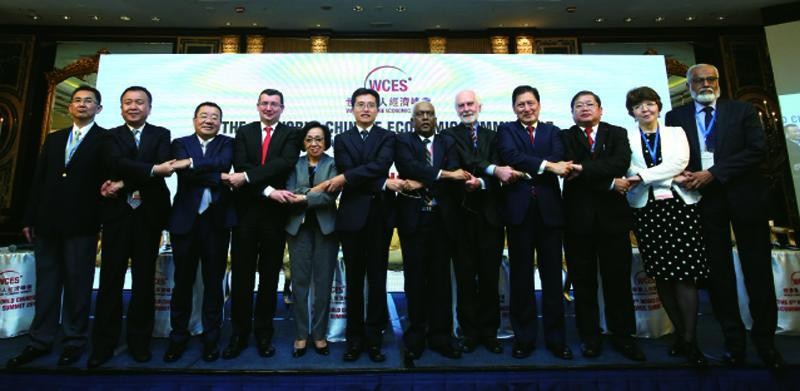2017-11-14
Evelyn Yu

HONG KONG - With the Trans-Pacific Partnership (TPP) “dead in the water”, member states of the Association of Southeast Asian Nations (ASEAN) have reunited by embracing new economic projects, such as the Belt and Road Initiative and the Regional Comprehensive Economic Partnership (RCEP), in an effort to reap the fruits of closer regionalization, the Ninth World Chinese Economic Summit in Hong Kong heard on Monday. “To me, the TPP was politically motivated. The US wanted to pivot to Asia, so they needed to have an instrument”, Ambassador Delia Domingo Albert, former minister of foreign affairs of the Philippines, told the conference. The mega-regional free trade agreement, which was aimed at the eventual removal of tariffs on almost all goods, came to an abrupt halt when US President Donald Trump withdrew the US earlier this year from the negotiations on the pact that was to embrace 12 Pacific-rim countries. RCEP has come to the fore. The negotiations, which started in 2012, were spearheaded by the 10-member ASEAN grouping, as well as six ASEAN free trade partners — Australia, China, India, Japan, the Republic of Korea and New Zealand. The agreement is widely expected to be concluded by the end of this year. Albert said although the chances of all the countries reaching a consensus this year are slim, she’s confident it would happen soon. “The RCEP is based on the existing ASEAN economic community. It has ASEAN personality, and it’s not just about trade, but includes investment and trade too,” she told the summit. She said ASEAN regionalization is especially meaningful in the context of the Philippines. “With all the economic challenges, no country can solve it alone.” The envoy said inadequate physical infrastructure is only part of the Philippines’ problems. Institutional infrastructure, which requires an efficient government management and financial system, and soft infrastructure to address poverty inequity have also imposed grim challenges on her country. However, with tariffs and barriers removed, Albert sees the Philippines benefitting greatly from direct foreign investments from RCEP countries and China’s Belt and Road Initiative. Such initiatives, she said, are very much in line with Philippine President Rodrigo Duterte’s multi-billion-dollar “Build, Build, Build” plan. Agriculture in the Philippines will stand as a direct beneficiary of the deepening ties, as the country has long been deemed as the “food basket” by its major importers, Albert said. What she expects more is the driving force that pushes the Philippines and other ASEAN countries to open up its markets and enhance connectivity. As an example, the former minister said the negative list in the Philippines banning foreign investments is not necessary as many of the sectors involved are owned by politically well-connected families and could be opened up to the market. A better understanding of ASEAN people under greater regionalization can further deepen ties and uproot disputes, she believes. “We all have different colonial relationships with different countries in colonial ages. For the Philippines, we had been colonized by the US and Spain, we used to know more about the US than Indonesia. But now, we want to know more about our ASEAN countries, and when 10 countries stick together, we have more bargaining power in the world.”